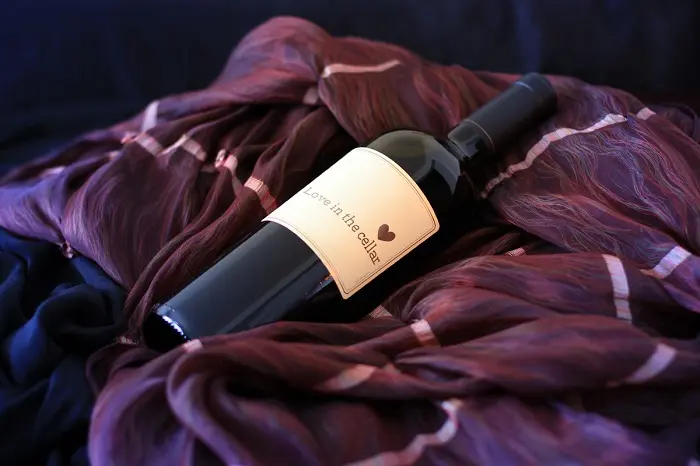In what could be called a heartwarming story in the world of winery acquisitions, James MacPhail has reclaimed his namesake brand, MacPhail Family Wines, 13 years after selling it to Hess Persson Estates. This move follows a similar trend in 2024, where winemakers have taken back control of their original brands, as seen earlier this year when Patz & Hall co-founder James Hall reacquired his winery from Ste. Michelle Wine Estates. The details of MacPhail’s purchase, including the price, remain undisclosed, and the acquisition does not include any vineyards.
James MacPhail originally founded MacPhail Family Wines in 2001, during a surge of small Pinot Noir wineries that emerged in the late 1990s and early 2000s. These wineries were known for crafting single-vineyard wines from grapes they purchased. The label of MacPhail Family Wines, which features a Radio Flyer wagon, reflects MacPhail’s approach to winemaking and marketing. “I didn’t want a Burgundy-style label. I wanted something fun, whimsical, and approachable,” MacPhail explained in 2011.
The wines produced under MacPhail’s label consistently received high scores on Wine Spectator’s 100-point scale. However, in 2008, a wildfire in California’s Anderson Valley caused significant damage, resulting in smoke-tainted grapes. Consequently, MacPhail chose not to release any wines from that vintage. The global financial crisis that followed also posed significant challenges for his brand.
At the time, MacPhail was also crafting Pinot Noir for the Hess Collection under the now-defunct Sequana label. In 2011, facing the increasing difficulties of running a small winery, he decided to sell MacPhail Family Wines to Hess, telling Wine Spectator that he wanted to refocus on the art of winemaking.
Following the sale, MacPhail transitioned into a role as a consulting winemaker, specializing in single-vineyard wines. He now creates wines for 10 different wineries, including The Calling, Sangiacomo, and We Know Jack, among others. In 2012, he also launched a new label, Tongue Dancer, with his wife, Kerry. MacPhail currently oversees winemaking at more than 70 vineyard sites across eight different appellations in California. “I’m like a kid in a candy store with all of my projects and vineyards,” MacPhail said.
The Hess Collection, originally founded by Swiss entrepreneur and art collector Donald Hess in 1978, has grown to include several wineries across Australia, South Africa, Argentina, and California. Following Hess’s passing in 2023, the family-run winery has been managed by the next generation, Sabrina and Timothy Persson, under the name Hess Persson Estates. Their focus is on building a portfolio centered around high-end Cabernet Sauvignons. “Over the last decade, we’ve made significant investments in replanting our Napa Valley estate vineyards and upgrading our winery, which was severely damaged in the 2014 earthquake,” Timothy Persson noted.
Recently, Hess Persson has expanded its Hess Collection Allomi and Lion Tamer Cabernet Sauvignon lines and introduced a new label, Panthera, featuring Pinot Noir and Chardonnay from the Sonoma Coast.
Timothy Persson believes that MacPhail Family Wines is best served by being under its founder’s guidance once again. “We’ve had a successful track record of refining our portfolio, keeping what fits and letting go of what doesn’t,” Persson stated. “A brand like MacPhail thrives best in the hands of its original creator. I’m delighted we could return it to James, and I’m proud of how we cared for the brand during our stewardship.”
MacPhail began considering the possibility of reacquiring his label a few years ago. “I was raised in a family business that has been around since 1880. When I started MacPhail Family Wines, it was with a bit of naivety but also with the passion to create something enduring for myself and my family,” he shared. “I wanted it to last for generations, not just because my name was on the label.”
With the brand back in his hands, MacPhail plans to return it to its roots as a boutique winery, focusing on small-lot, single-vineyard Pinot Noirs from Anderson Valley. The first vintage under his renewed leadership will feature grapes from Toulouse Vineyard, the first vineyard he sourced from when he founded the brand in 2002. Production is set at 1,000 cases, and MacPhail intends to keep it limited to a few thousand cases annually.
Reflecting on his nearly three decades of winemaking experience, MacPhail expressed a desire to manage the business more wisely moving forward. “I’d like to take what I’ve learned over the years and apply it better—plan better for things like financial crises or other challenges that arise. If you’ve learned something, it should help you execute better.”


